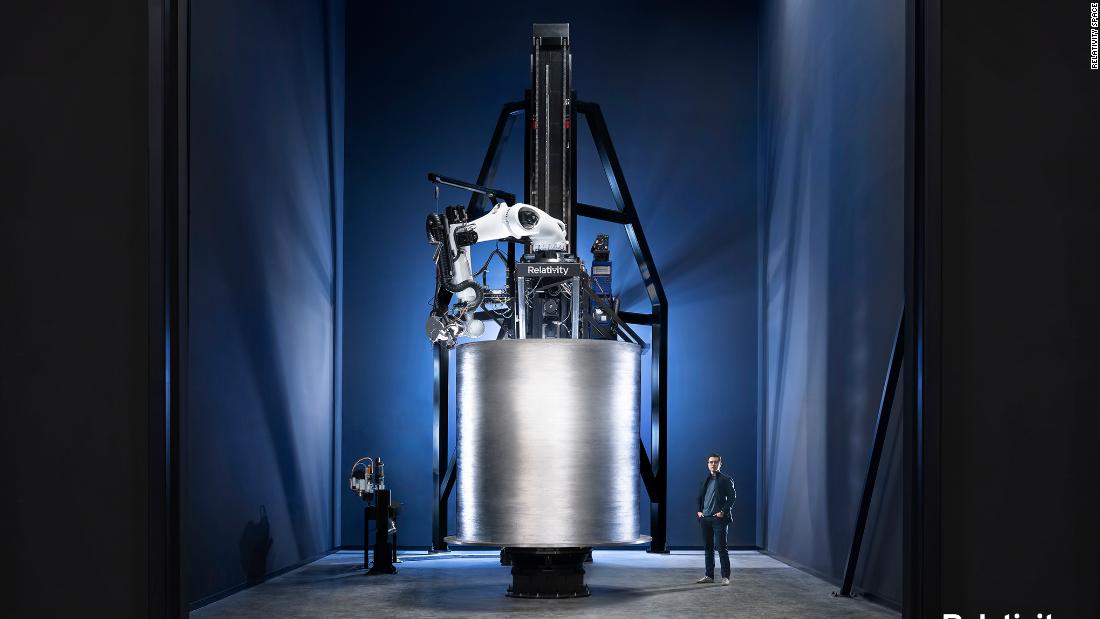
Relativity is 3D printing rockets and raising billions. Will its technology work?
CNN
Tim Ellis, an unassuming 31-year-old with glasses who shuffles around his sprawling rocket factory in designer sneakers, has what every space company founder longs for: a seemingly endless well of investors willing to pour money into his company.
Relativity Space, the rocket startup Ellis co-founded in 2015 after he left Jeff Bezos' space company, plans to build fairly small rockets that can blast satellites into orbit cheaply and quickly. If that sounds familiar, that's because it's the same business plan touted by dozens of rocket startups all over the world.
Relativity stands out in some respects. The company raised about $1.2 billion in just eight months, a level of investment frenzy enjoyed by few in the space industry outside of Elon Musk's SpaceX. Relativity's massive factory in Long Beach, California, teems with activity as rocket parts are hauled from one area to another, workers compete for oversubscribed desk space, and massive hangar doors conceal some of the largest 3D printers in the world at work.

Botched Epstein redactions trace back to Virgin Islands’ 2020 civil racketeering case against estate
A botched redaction in the Epstein files revealed that government attorneys once accused his lawyers of paying over $400,000 to “young female models and actresses” to cover up his criminal activities

The Justice Department’s leadership asked career prosecutors in Florida Tuesday to volunteer over the “next several days” to help to redact the Epstein files, in the latest internal Trump administrationpush toward releasing the hundreds of thousands of photos, internal memos and other evidence around the late convicted sex offender Jeffrey Epstein.

The US State Department on Tuesday imposed visa sanctions on a former top European Union official and employees of organizations that combat disinformation for alleged censorship – sharply ratcheting up the Trump administration’s fight against European regulations that have impacted digital platforms, far-right politicians and Trump allies, including Elon Musk.










